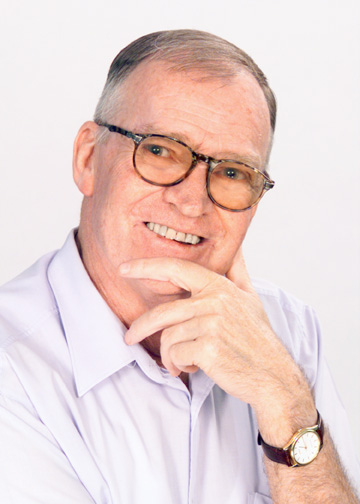Home
Article
Archive
2000 2001
Editor:
Neil Johnston
Columnists:
Rollo
Manning
Leigh Kibby
Jon
Aldous
Roy Stevenson
Brett Clark
Ken Stafford
Pat Gallagher
Heather Pym
Simon
Rudderham
Mark
Coleman
James
Ellerson
Terry
Irvine
Roundup
Peter
Sayers
OCTOBER, Edition # 35, 2001
[Home] [About The Newsletter] [Topics Covered] [Testimonials]
ROLLO MANNING
|
* Click on photograph to view list of previous articles by this author. |
PHARMACY
STRUCTURE
Click on the Newsletter Reader's Forum link to access a forum from which you can express your comment or viewpoint on this article.
The author values your input, so please take the time to register your details, and participate in the only free debate on the future of Australian pharmacy.
Registration is free, and required once only, for permanent access.
You do not need to register if you only wish to view comments.
This is called the "social responsibility" of industry.
The Australian Pharmaceutical Manufacturers Association (APMA) and the Pharmacy Guild of Australia, have this week made significant moves towards showing they support community issues.
The APMA, at a spectacular dinner in Canberra, held in the National Museum, made two presentations under their newly established "Community Care" program to support Aboriginal Health Workers and Indigenous Doctors. The Pharmacy Guild announced grants to assist people from rural and remote parts of Australia with scholarships to assist pharmacy students with their expenses.
At a time when the bad news is high priority, it is good to see the two peak organisations for pharmacy interests showing a lead with spending to correct imbalance in opportunity brought about by the tyranny of distance.
Imagine if pooled together the amounts given throughout a year by individual manufacturers and retail pharmacists towards social issues.
The amount would be in the millions of dollars.
However there is a difference between local sponsorship where the return is through collaborative advertising, and contributions to social issues, which has no direct return but does enhance the standing of the donor in the eye of others.
Federal Parliamentarians, other pharmacy and Aboriginal health representatives, and the media attended the APMA dinner.
The announcement of community service awards at such a function can only enhance the standing of the organisation and it's members in the eyes of those that matter - the decision makers at the top level of the Government and its bureaucracy.
The past 10 months has been a tumultuous one for the APMA, the Minister for Health Michael Woolridge and the Pharmaceutical Benefits Advisory Committee and its members. The APMA have now shown they have a well-oiled PR machine that is able to attract the attention of those that matter, and astutely handles its relationship with "people in high places".
In a speech to the APMA dinner, unprepared, and in response to a tribute to his parliamentary career, Dr Michael Woolridge quoted an American President as saying that "if you want a friend in politics, get a dog".
The APMA Executive and the Guild heirachy would support this, but not always.
When things are going well there are plenty of friends.
The trouble is that when it is not all-well, they are few, and the enemies come out of the woodwork.
It is at the time when things are not well that a contribution to social development can swing support in favour of the organisation which has had the sense to promote social responsibility.
It is to be hoped the individual members follow the lead, and not always rely on collaborative advertising for return on investment in contributions to social issues.
Visit Rollo Manning's model relating to the
"Job of a Pharmacist"
There are periodic new postings keeping the model updated.You can now visit Rollo Manning's website at
http://www.rollomanning.com
View his page on the Tiwi Health
Board Project.
http://www.rollomanning.com/tiwi.html
The comments and views expressed in the above article are those of the author and no other. The author welcomes any comment and interaction, directly or via the Newsletter Reader's Forum Link located at the begginning and end of the article.
The newsletter archives are now fully searchable via the search engine on the left hand side of this page. If you would like to find similar articles to the above material, please enter the appropriate keyword(s). To retain context with multiple keywords or phrases, please enclose in inverted commas.
Please contact us if you would like further information or would like us to research additional material to publish as future articles.
Don't forget to advise of any change in your e-mail address so that your subscription may be continued without interruption.
Letters to the editor are encouraged, or if you have material you would like published, please forward to the editor.
Any interested persons who would like to receive this free newsletter on their desktop each fortnight, please send a single word e-mail "Subscribe"*
If you have found value in this newsletter, please share it with a friend, or alternatively, encourage a colleague to subscribe
neilj@computachem.com.au
Why not try (and bookmark) the
Computachem Interweb Directory
for an easily accessed range of medical and pharmacy links, plus a host of pharmacy relevant links.
The directory also contains a very fast search engine for Internet enquiries. You may also access the Home Page at:
http://www.computachem.com.au
Back
to Article Index
Article
Archive 2000
Article
Archive 2001
Home

